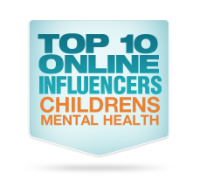 Our current blog series… Dissecting the DSM-5…What it Means for Kids and Families, concludes by examining the conundrum looming for persons with mental illness and their families…the likelihood that little or no money will be available to fund clinical research to address critical treatment issues in children’s mental health before the current generation of kids transitions into adulthood.
Our current blog series… Dissecting the DSM-5…What it Means for Kids and Families, concludes by examining the conundrum looming for persons with mental illness and their families…the likelihood that little or no money will be available to fund clinical research to address critical treatment issues in children’s mental health before the current generation of kids transitions into adulthood.
The concept of evidence-based medicine has become so ubiquitous in the health care professions over the last 10-20 years that it’s hard to imagine that there’s ever been a time in which treatment was not “evidence-based.” It’s like trying to explain to my kids that there was a time when seat belts weren’t required in cars or explaining to physicians in training that the chairman of psychiatry at Cleveland Clinic used to smoke in his office during my required supervision as a resident. Despite the progress we’ve made on so many fronts in the health care field in recent decades, a remarkable number of clinical decisions required of us in child and adolescent psychiatry are based upon intuition and experience in the absence of evidence from well-designed research studies.
I was honored to have been invited to speak as a representative of clinicians at the American Academy of Child and Adolescent Psychiatry’s 2010 Research Forum on the topic of research priorities for our field. You can click this link to download the presentation, but here are examples of questions that parents routinely ask in my office for which too little research support exists…
- What are the long term effects of commonly prescribed medications on neurodevelopment?
- Are there studies to help predict in advance whether my child will experience serious adverse effects from medication?
- How safe and effective are common homeopathic treatments?
- For how long will their child need medication?
- How does psychotherapy and psychosocial treatments attenuate the need for medical intervention?
- How effective is community-based psychotherapy performed by clinicians on managed care panels? Working for public agencies?
- What is the best way to treat kids with severe irritability, aggression, and/or self-injurious behavior in chaotic living situations?
- What is the best way to treat kids when two or more mental disorders are present? (e.g., ADHD together with an anxiety disorder)
Given what we don’t know about common questions that arise in treating kids with mental illnesses, a critical priority in any major initiative to improve treatment outcomes should be support of research to address our enormous knowledge gaps. The tragic flaw in the DSM-5 is that the new diagnostic criteria have been declared “dead on arrival” by the leaders of the organization positioned to fund the research necessary to direct clinical care.
At the very beginning of this series, we quoted the blog written by Dr. Thomas Insel, Director of the National Institute of Mental Health on the inadequacies of the DSM-5. Here’s what Dr. Insel had to say regarding the utility of the DSM-5 in research…
But it is critical to realize that we cannot succeed if we use DSM categories as the “gold standard.” The diagnostic system has to be based on the emerging research data, not on the current symptom-based categories. Imagine deciding that EKGs were not useful because many patients with chest pain did not have EKG changes. That is what we have been doing for decades when we reject a biomarker because it does not detect a DSM category. We need to begin collecting the genetic, imaging, physiologic, and cognitive data to see how all the data – not just the symptoms – cluster and how these clusters relate to treatment response.
That is why NIMH will be re-orienting its research away from DSM categories. Going forward, we will be supporting research projects that look across current categories – or sub-divide current categories – to begin to develop a better system. What does this mean for applicants? Clinical trials might study all patients in a mood clinic rather than those meeting strict major depressive disorder criteria. Studies of biomarkers for “depression” might begin by looking across many disorders with anhedonia or emotional appraisal bias or psychomotor retardation to understand the circuitry underlying these symptoms. What does this mean for patients? We are committed to new and better treatments, but we feel this will only happen by developing a more precise diagnostic system.
So…what happens to the needs of kids and families impacted by mental illness in the healthcare system of the future when resources are finite and the evidence supporting the effectiveness of treatments is lacking? More importantly, how will we get the answers we need to help the 20% of kids with mental illness and their families?
Photo courtesy of http://www.freedigitalphotos.net
Updated June 27, 2014
***********************************************************************************************************
 Key Ministry has assembled resources to help churches more effectively minister to children and adults with ADHD, anxiety disorders, Asperger’s Disorder, Bipolar Disorder, depression and trauma. Please share our resources with any pastors, church staff, volunteers or families looking to learn more about the influence these conditions can exert upon spiritual development in kids, and what churches can do to help!
Key Ministry has assembled resources to help churches more effectively minister to children and adults with ADHD, anxiety disorders, Asperger’s Disorder, Bipolar Disorder, depression and trauma. Please share our resources with any pastors, church staff, volunteers or families looking to learn more about the influence these conditions can exert upon spiritual development in kids, and what churches can do to help!




